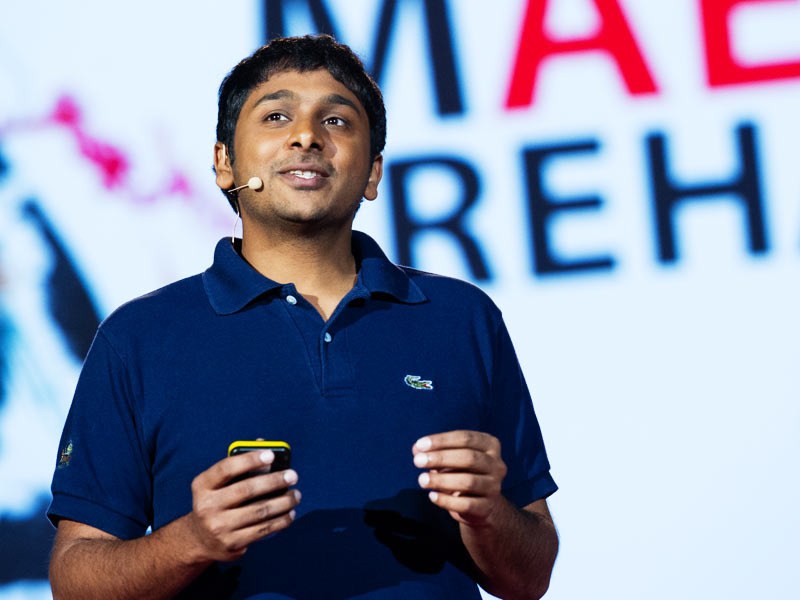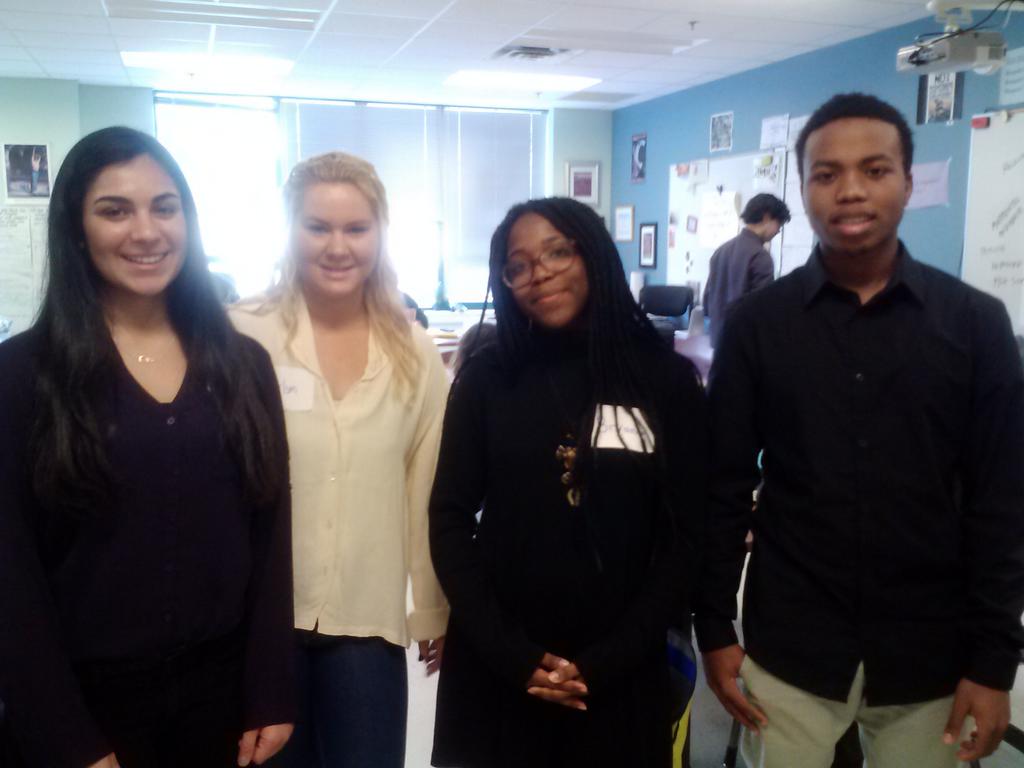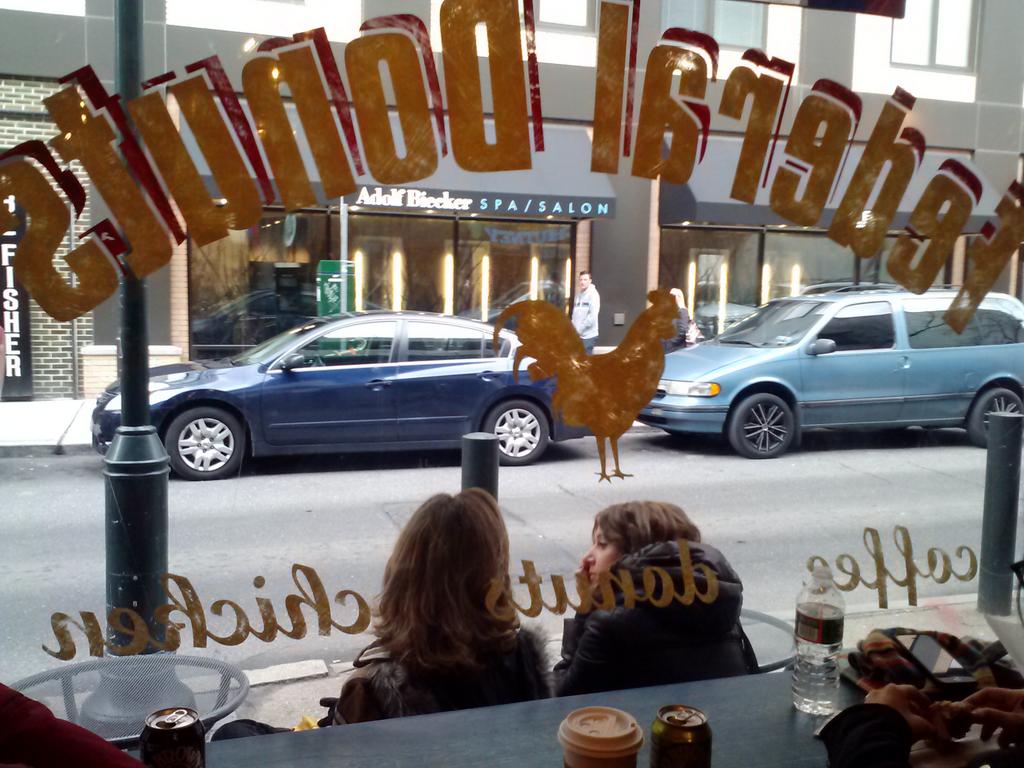I can see why many Educon attendees remarked that they’d spent their own money to be there. The conference, held at Science Leadership Academy in Philadelphia is that good. It was an eclectic group of out-of-the-box thinkers, innovators, and activists. I knew I wanted to go when I saw Chris Lehmann, founding principal of the SLA, speak in Killington last year.
I was a first-timer. Day one was spent at the school - a public high school that is an inquiry-driven, project school - in partnership with the Franklin Institute. I and a few of my colleagues found a student to guide us. She patiently walked us to different classes where we watched, listened, and sat with students to chat. Students in one class passionately explained a project in which they protested the closing of a huge number of Philadelphia public schools. Students in Doug Herman’s photography class told me what they’d learned about composition and layering and why they were in the photography room even though it was actually their lunchtime. In Algebra II they had designed a catapult to hit a target and were typing a reflection about their group process. I was hooked.
Then, of course, there were many great workshops, Ignite talks, and side conversations on Saturday and Sunday. Here are some of the people I met and learned from, along with some quotes and resources.

A highlight of the conference for me and many others, I’m sure, was Raghava KK, the effervescent, charming presenter and self-proclaimed TED whore. Here’s a 4 minute TED on bias and perspectives in history. He helped me remember what it means to be truly creative. You don’t matter, he said to all the educators in the room. Art should be the medium by which stem is taught... Art is how you teach everything... Incorporate visual literacy in everything you do.
Every disagreement is a chance to learn about a different perspective.
Raghava’s co-presenter, Meenoo Rami, an SLA teacher, hosted this session in her classroom. After meeting her, I was sorry I hadn’t made it to her class on Friday.
Diana Laufenberg, of SLA, led a workshop on school transformation and Joni and I sat with a Eric Dale from the Dwight School in NYC and Andrew Gallagher of the NYC Department of Education. We enjoyed hearing about Eric and Andrew's work, marveling over the vastness of the NYC school system. Diana recommended the book Immunity to Change.
Deterritorialize departments. Get away from content and move to skills.

The one thing I wish I'd known about was this idea of transformational resistance.
Is the student trying to transform the environment in some way instead of doing something wrong?
Math and Social Justice, was a session I didn’t attend, but wanted to. Thank you for posting these resources.
Burlington High School (Massachusetts) has a course called Help Desk. See their great website here, which was presented by female STEM enthusiasts on their way to becoming engineers.
There was a really cool panel I was late for. I liked the conversation that was happening when I arrived, which included comments from Otis Hackney, Principal of South Philadelphia High School.
When people say ‘they don't have the background knowledge’, I say, it is your job to give them the background knowledge they need! If they walked in already knowing everything, they don't need us. As an educator you have a job to do.
What if you had a school with mostly white students and all black teachers, what would that be like?

David Jakes, Imagining Digital Spaces for Learning. In groups, we designed a digital learning space, but we were not allowed to discuss any specific tools. Anyone who is working in or redesigning a school should read Toolkit for Designing a Digital Atelier.
Have you intentionally designed a space that intentionally supports your vision of learning?
How do you design a physical space for an increasingly virtual education?

Last but not least, I was in a wonderful session called Shifting the Focus: Elevating Student Voices led by students and their teachers, Josh Block and Amal Giknis. First, the students shared their projects and then we were asked to create an “education manifesto” in 30 minutes that could be posted to twitter with hashtag #focusonvoice. The students were so open and passionate in their presentations and then were so effective as they came around to help us with our assignment...this session is one that has really stuck with me. I was fortunate enough to sit with Renee Hawkins, a very thoughtful educator from a school in Baltimore.
I don’t know how I’ll stay away from Educon next year. I had my mind blown by great thinkers, got to spend time with beloved colleagues, and had my first taste of a grapefruit brulee doughnut from Federal Donuts. As Raghava said, Don’t mess with passion.




